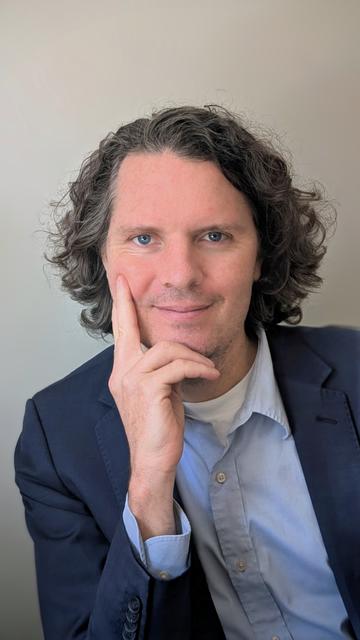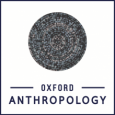Professor Eben Kirksey

Professor of Anthropology
Fellow of St Cross College
Eben Kirksey is a cultural anthropologist and award-winning author. Broadly speaking, his research and teaching relates to the environment, medical anthropology, continental philosophy, and human rights.
Kirksey is perhaps best known for his work in multispecies ethnography—an emerging field that considers how people interact with animals, microbes, plants, and fungi. Wide ranging interests—related to novel ecosystems, biological art, medical ethics, reproductive justice, CRISPR gene editing, and disability—are reflected in his diverse publications. Hope is a recurring theme in his work: not as naive optimism, but as a method for identifying fragile possibilities for life, justice, and peaceful coexistence. Currently he is studying how the human condition has been shaped by symbiotic viruses, biotechnology, chemical exposures, and capitalism.
As a pro-bono human rights expert, Eben Kirksey has long collaborated with Amnesty International and Human Rights Watch to advocate for justice in West Papua, a territory under Indonesian rule. Recently he has also been involved in advocacy and research related to multispecies justice and environmental sustainability.
“The Emergence of Multispecies Ethnography,” his co-authored article with Stefan Helmreich, has become a highly-cited text in anthropology and has influenced research agendas in science studies, geography, ecology, and the environmental humanities.
Personal website: https://eben-kirksey.space/
Contact
Email: eben.kirksey@anthro.ox.ac.uk
Research and fieldwork
Kirksey has carried out extensive ethnographic field research in West Papua, Costa Rica and Panama. He is an advanced speaker of Spanish, Bahasa Indonesia, and Logat Papua, the unofficial regional language of West Papua. Multisited research for Emergent Ecologies (Kirksey 2015), brought him from Central America to New York City, New Orleans, Sydney, Maine, and Florida. Following global debates about CRISPR gene editing for The Mutant Project (Kirksey 2020), led him to travel from Washington D.C., to San Francisco, Hong Kong, and Shenzhen, China. Since 2020 he has studied the global movements of viruses as a multispecies ethnographer.
Human rights and policy advocacy
In 1998, as an undergraduate exchange student, Eben Kirksey witnessed the Biak Massacre in West Papua. Kirksey testified about these killings before the U.S. House of Representatives in a 2010 Congressional Hearing. He addressed gender-based violence and broader crimes against humanity in his congressional testimony. On the fifteen year anniversary of the Biak Massacre, Kirksey testified at a Citizens Tribunal that formally investigated the killings and the rape of Indigenous women by soldiers.
Kirksey’s research and advocacy in West Papua highlights issues of decolonisation, resource extraction, and human rights. His 2012 book Freedom in Entangled Worlds offered one of the most detailed ethnographic accounts of Papuan resistance and international solidarity networks, situating human rights struggles within global architectures of power. He has served as Indonesia Country Expert for Amnesty International USA (2011–2012). He also co-authored the 2003 Sunday Times exposé “Indonesian troops for BP gas project,” which investigated the role of multinational corporations and the Indonesian military in securing natural resource developments in West Papua.
He remains deeply involved in advocacy for Papuan rights. In June 2024, he provided expert testimony during a session of the Permanent Peoples’ Tribunal (PPT) in London addressing state and environmental violence against Indigenous peoples in West Papua. The PPT’s judgment, released in October 2024, cited his expertise in connecting ecological destruction with systemic rights violations in the region. The BBC Indonesia report on the Tribunal reflected the wider context of Kirksey’s advocacy and the debates surrounding West Papua’s future.
In parallel to his work on West Papua, Kirksey has expanded his human rights engagement to global debates concerning biotechnology, reproductive justice, and the ethics of emerging sciences. His writing connects topics related to COVID-19, gene editing, and reproductive medicine to broader questions of justice and equity.
Public engagement and art
Kirksey has consistently connected his research with public engagement and art. He was lead curator of The Multispecies Salon, which staged exhibitions in New Orleans and New York and developed an online multimedia portal featuring videos, artworks, and a living glossary of multispecies studies. These exhibitions often created experimental encounters where living organisms, human communities, and technological systems interacted, highlighting the porous boundaries between ecology, art, design, and science. He also curated the Emergent Ecologies and Multispecies Justice exhibitions, creating spaces where artistic practice intersected with ecological research and political debate.
In March 2024, he delivered the lecture Decentered Multispecies Design at the Multispecies Design Symposium in Berlin, where he argued that design should decenter the human and be attentive to the lives of animals, plants, fungi, microbes, and other beings. His storytelling ability and public speaking skills have made him a sought-after keynote speaker at academic and cultural events worldwide.
The Guardian has published his popular articles about viruses and environmental justice, and his writing about human rights has appeared in The Sunday Times. Kirksey’s articles about the ethics of gene editing have been featured in The Atlantic, Wired, and The New York Times.
Awards and recognition
Kirksey has received major awards and fellowships, including a British Marshall Scholarship (2000 - 2003), National Science Foundation Postdoctoral Fellowship (2008 - 2010), a Mellon Postdoctoral Fellowship (2010 - 2012), an Australian Research Council DECRA Fellowship (2014 - 2017), an ARC Discovery Grant (2020 - 2023), and an ARC Future Fellowship (awarded 2022, declined).
Freedom in Entangled Worlds, his first book, was awarded Best Monograph by an Early Career Researcher in 2013 by UNSW Sydney. Emergent Ecologies was awarded the 2016 Diana Forsythe Book Prize in recognition of his contribution to feminist science studies. The Mutant Project was longlisted for the 2021 Baillie Gifford Prize for Non-Fiction, an annual British book prize for the best writing in the English language.
Service and editorial work
He is a member of the Editorial Board of Medical Anthropology Quarterly (since 2025) and the Editorial Advisory Board of Environmental Humanities (since 2012). He also serves on the Biosocial Anthropology Committee of the Royal Anthropological Institute.
Books
Kirksey, Eben. (2020) The Mutant Project, New York: St. Martin’s Press.
Kirksey, Eben. (2015) Emergent Ecologies, Durham: Duke University Press.
Kirksey, Eben. (2012) Freedom in Entangled Worlds: West Papua and the Architecture of Global Power, Durham: Duke University Press.
Edited Collections
Kirksey, Eben (2022) “Viral Theory,” e-flux journal, Issue #130.
Chao, Sophie, Karin Bolender, & Eben Kirksey (2022) The Promise of Multispecies Justice. Durham: Duke University Press.
Shapiro, Nicolas & Eben Kirksey (2017) “Chemoethnography: Openings and Retrospectives” Cultural Anthropology 32 (4).
Kirksey, Eben (2014) The Multispecies Salon, Durham: Duke University Press.
Kirksey, Eben & Stefan Helmreich (2010) “The Emergence of Multispecies Ethnography,” Cultural Anthropology 25 (4).
Selected Articles and Essays
Kirksey, and Aaron Su (2025), “Inscrutable Futures: Biotechnology, Architecture, and Planetary Ecology in Late Industrial China,” BioSocieties 20(1): 73-96.
Kirksey, Eben (2023), “CRISPR Enters the Fertility Clinic,” in Cecilia Coale Van Hollen and Nayantara Sheoran Appleton (eds), A Companion to the Anthropology of Reproductive Medicine and Technology. London: Wiley-Blackwell, p. 444-57.
Kirksey, Eben (2022) “Impure Hopes: CRISPR and an HIV Cure,” Gay and Lesbian Studies Quarterly (GLQ), 28(1): 29-53
Kirksey, Eben (2022) “Genealogy, Virality, and Potentiality: Moving Beyond Orientalism with COVID-19,” Journal of Bioethical Inquiry, 18: 383-387.
Kirksey, Eben (2021) “Living Machines Go Wild Policing the Imaginative Horizons of Synthetic Biology,” Current Anthropology, 62 (S24): 287-297.
Kirksey, Eben (2020) “The Emergence of COVID-19: A Multispecies Story,” Anthropology Now, 12(1): 11-16.
Kirksey, Eben (2020) “Chemosociality in Multispecies Worlds: Endangered Frogs and Toxic Possibilities in Sydney, Australia,” Environmental Humanities, 12(1).
Kirksey, Eben (2019) “Queer love, gender bending bacteria, and life after the Anthropocene,” Theory, Culture & Society, 36 (6): 197-219.
Kirksey, Eben, Paul Munro, Thom van Dooren, et al. (2018) “Feeding the flock: Wild cockatoos and their Facebook friends,” Environment and Planning E: Nature and Space, 1 (4): 602-620.
Shapiro, Nicholas and Eben Kirksey (2018) “Chemo-ethnography: An introduction,” Cultural Anthropology, 32 (4): 481-493.
Full publications: https://eben-kirksey.space/writing/



